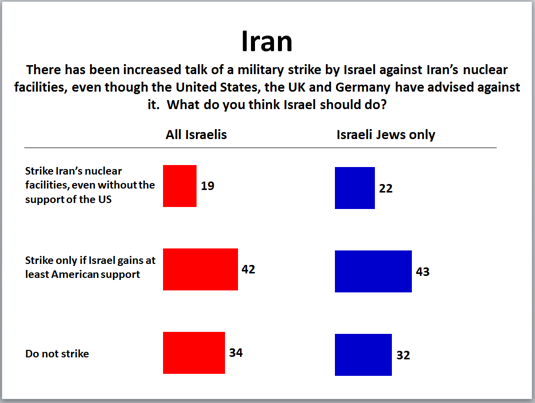You know, I don’t give military officials enough credit sometimes. NIAC reports on a CSIS panel last week, quoting former military officials on whether or not to attack Iran:
“We are reaching this crescendo of talk – just constant – war, war, war,” said former CENTCOM Commander, Admiral William J. Fallon. “It’s almost like the old movie, the black and white, beating the drum, and the galley slaves. And the chant goes on. Certainly not very helpful at all.”
Fallon spoke on a panel hosted by CSIS along with former Vice Chairman of the Joint Chiefs of Staff General James Cartwright last week. The panelists were in firm agreement that a military operation to try to stop Iran’s nuclear program is a bad option for the United States.
When asked if a military strike could prevent a nuclear-armed Iran, General Cartwright replied bluntly, “no.” He explained, “you’re not going to kill the intellectual capital to just rebuild the centrifuges someplace else and continue on.”
Asked whether others in the military believed that a military strike on Iran would be prudent, the men indicated they did not. “No one that I’m aware of [in the military] thinks that there’s any real positive outcome of a military strike or some kind of conflict,” Admiral Fallon said.
…”At the end of the day,” said Admiral Fallon, “these are people – 70,000,000 of them. They have aspirations and desires, and there needs to be room for demonstrated cooperation and a willingness to walk away from things that are detrimental to the region–that there’s something in this for them. And so, having some light at the end of the tunnel, not closing off all options, but letting them know ‘hey, we’re willing to have you play a role in the region. You got a lot of capability, you got a lot of smart people, a lot of things you could really be helpful [with] if you decided to be cooperative in your dealings with your neighbors.'”
Admiral William J. Fallon and General James Cartwright are echoing current Chairman of the Joint Chiefs of Staff Gen. Martin Dempsey’s statements in recent weeks, that an attack on Iran would be pointless, dangerous, and unwise.
The message is not just anti-attacking-Iran and pro-peaceful-negotiations, but it also is a sincere attempt to get people to understand that the leadership in Iran is not some crazed, almost caricatured monolith. The media’s propaganda on Iran, and much of the talk from half-retarded politicians, paints the regime as an evil, fanatical, uncompromising group of people committed both to terrorism and the apocalyptic destruction of Israel and everyone in it. These military men are saying: no, if you simply talk to them and give them options and understand their incentive structure, war can easily be avoided.
Various hawks in Washington in part base their pro-war jingoism and faultless American exceptionalism on being pro-military and pro-soldier. From that hellish trio of Senators Lindsey Graham, John McCain, and Joe Lieberman to the GOP contenders, much of that ideological rhetoric is based on elevating the top military brass to a heroic, almost sacred stature. Yet they still continue the pro-war rhetoric and systematic threat-inflation, despite the sensible, even antiwar talk coming from people like Fallon, Cartwright, and Dempsey. We don’t see them modifying their positions based on what the military leadership says.
It’s notable that the political pressure to support monstrous aggression and intervention abroad seems to come from the media and the politicians, not – at least in this case – from the military and intelligence community. The political spectrum basically has room for pro-war and very pro-war and this appears to feed on itself. The American people are fickle enough that if the admirals and generals were the ones they listened to instead of demagoguing politicians, they’d exercise more sober thinking here as well. But the people don’t hear Dempsey or Panetta or Clapper making the case against war; they hear the Santorums and Ed Schultzes of the world.
[Just as an aside, this is not to give undue credit to the military and intelligence community. While they and the administration have been decidedly against preemptively striking Iran, policies like crippling sanctions, covert war, and military encirclement are regressive and are more likely to be a prelude to war than doing what ought to be done (i.e. negotiations, dropping the double standard on Israel, etc.).]




